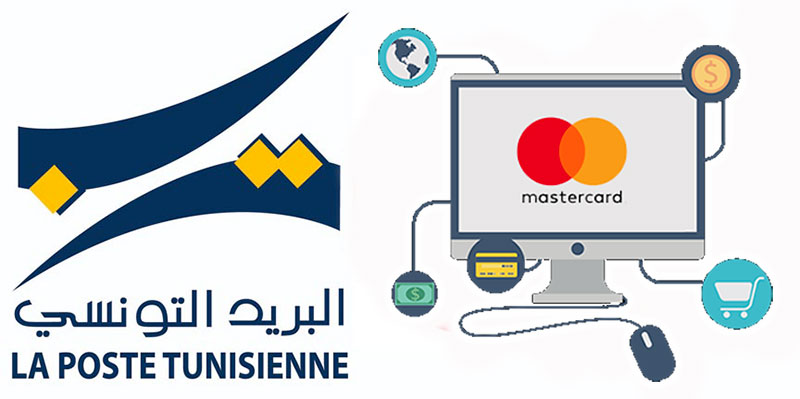Avec le lancement de la nouvelle passerelle de paiement MPGS annoncée par la Poste Tunisienne, il s’est avéré crucial de demander l’information précise auprès des responsables monétiques de la poste afin d’éclaircir aux utilisateurs les avantages et les valeurs ajoutées par cette nouvelle plateforme. De ce fait, cet article se présentera sous la forme d’une FAQ (Foire Aux Questions) pour répondre à toutes vos questions et ainsi lever toute ambiguïté.
Ceci étant établi, procédons tout de suite à la première question :
Qu’est-ce que la MPGS et quelle est sa relation avec la poste ?
La MPGS (Mastercard Payment Gateway Services) est tout simplement une passerelle de paiement. Cette passerelle de paiement est l’intermédiaire entre une boutique en ligne et le processeur de paiement qui reçoit le paiement effectué par un client.
En d’autres termes, une fois qu’un client aura saisi ses informations de paiement sur un site, la passerelle de paiement se charge de l’envoi sécurisé de ses données au processeur de paiement. C’est là qu’intervient la poste avec les fonctionnalités techniques offertes par la MPGS pour jouer le rôle d’un agrégat de paiement. Tout cela pour garantir l’acheminement des fonds à partir de la source d’approvisionnement de votre client jusqu’à votre compte bancaire/postal.

Grâce à cette carte puis-je acheter des produits en ligne avec toute liberté et sans restriction de plafond ?
MPGS n’est pas un service bancaire qui vous fournit une carte de paiements . C’est un service destiné uniquement aux commerçants en ligne pour les aider à collecter leurs fonds des clients locaux ou internationaux. En d’autres termes, ce service n’est pas fait pour monsieur et madame Tout-le-monde.
Comment ça se passe exactement pour le traitement des transactions de mes clients ?
Supposons que le client passe une commande sur votre site web, il passe à la caisse et remplit un formulaire avec ses coordonnées de paiement. Une fois la transaction confirmée, les fonds seront versés au compte en devise et la poste se chargera de vous verser votre argent en TND dans un délai réduit.
Qu’en est-il de la fiabilité/sécurité de ce nouveau service ?
Grâce aux technologies avancées de traitement des paiements et la compliance PCI DSS, il est garanti que les informations de vos clients seront traitées d’une manière très sécurisée. Ce qui permet une meilleure confiance en vos services et bien évidemment une meilleure conversion des visiteurs en clients. D’autre part, MPGS utilise des algorithmes à la dernière pointe afin de combattre la fraude écartant ainsi tout malfaiteur de votre boutique.
Et quoi de nouveau à propos de PayPal (et les autres e-wallets d’ailleurs) ?
Techniquement , il est possible d’intégrer PayPal ainsi que les autres e-wallets comme un moyen de paiement dans votre boutique. Mais malheureusement ce n’est pas encore réalisable puisque la poste n’a pas de contrôle sur vos flux PayPal. La poste, autrement dit, doit être soumise aux règlements de change tunisiens, qui ne permettent pas aux citoyens tunisiens d’avoir des fonds en devise à l’étranger et de les gérer en toute liberté. Résultat: Pas de PayPal pour le moment !
Qu’en est-il des frais d’utilisation d’un tel service ?
Pour chaque transaction, la poste applique des frais qui couvriront les commissions de change et de traitement. Ces frais dépendent de votre chiffre d’affaire et du prix moyen de vos produits proposés. Par exemple, on ne prélève pas les mêmes frais sur un produit de 0,5 TND que sur un produit de 500 TND. Mais en moyenne, on peut estimer cette commission aux alentours de 3% du prix de chaque produit acheté.
Comment puis-je m’inscrire à se service ?
La poste a déjà commencé à recevoir des demandes d’adhésion à ce service. Pour ce faire, il suffit de vous présenter à une branche de la poste, demander le formulaire d’inscription et le remplir.
L’inscription est-elle instantanée ?
Une fois le formulaire rempli et déposé, le processus de vérification de votre dossier se lance immédiatement. Si vous êtes éligible, la poste vous invitera à intégrer la plateforme sur votre site puis vous donne l’accès pour faire des paiements de tests. Bien sûr, si tout se passe correctement, vous serez enregistré dans la base de données des commerçants et le mode LIVE sera activé.
Ce service me permet-il de faire du Dropshipping ou de pratiquer n’importer quelle activité commerciale d’affiliation ?
Concernant ceci, on n’a malheureusement pas eu d’information exacte, mais cela doit être éclairci dans les prochains délais par le service monétique de la poste.
Mot de la fin :
L’introduction d’une telle plateforme aura sans doute un impact majeur sur l’écosystème de l’e-commerce en Tunisie. Cependant, il reste encore beaucoup de travail notamment en termes de textes légaux et réglementaires pour pouvoir s’adapter à la situation du marché en ligne de 2020 et pour permettre plus d’attractivité pour les sociétés d’activités similaires.




Share your thoughts